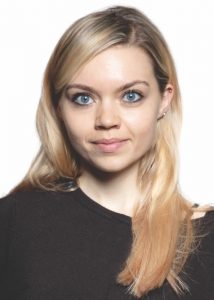
Often, the idea of ‘purpose’ is associated with big visions of social change, or spiritual revelations, or carefully mapped-out life plans. But there’s another way to think about ‘finding purpose’, a way that isn’t overwhelming or exhausting or daunting. Purpose-finding work can actually be a simple part of your lifestyle – the same as any other ‘wellness’ practice – and it can evolve with you over time. Here are a couple of ways to get started.
Purpose is often defined as ‘the reason for which something is done, or the reason for which something exists’. There are no rules about how you use the concept of purpose in your life, but it’s generally seen as a broad, overarching topic – one that shapes your behaviour and decision-making as you move through the world. Compare the idea of ‘mission’ or ‘goals’ – these are normally seen as shorter-term projects, which might have a set end-date or a defined moment of completion. You might set goals that help you work towards your purpose, but your purpose tends to be a bigger, guiding concept. Think of it less as a destination, and more as a compass, leading you in the right direction!
The journey towards ‘finding purpose’ doesn’t have to end with a perfect, one-line answer, and there’s no reason it should! After all, you’re a complex, changing, integrated person – so your ideas of purpose should be equally as complex, changing and integrated. Having said that, it helps to work through a couple of big questions, just so you can start to articulate the ideas and values that are most important to you. Try a few of the following:
You can work through these questions however you like. Perhaps make a few notes, or discuss with a friend or partner, or write a paragraph for each – whatever works best for you. The important thing is that you’re honest with yourself, that you start the process of reflection, and that you continue to ask these questions, with some consistency, as time passes. It’s very unlikely to be a one-time exercise that gives you a sense of your purpose. Much more likely is that a sense of purpose gradually develops over time, as you continue to do the work of self-exploration.
One of the most important principles, when it comes to ‘purpose-finding’ work, is that purpose can take a variety of forms as it changes throughout your life. At some points, purpose might be found in caring for family members, or in a new relationship. At other points, purpose might be found in a new work project, or in a new promotion. Purpose can be found in the smallest of actions, and in the most ordinary, day-to-day aspects of your life. Be honest with yourself about the things that give you meaning and inspiration. Nothing is too small to count.
If you can’t find the answers immediately, ask yourself this question: who am I helping in the course of my daily life? It doesn’t have to be anything ambitious or spectacular. Most (if not all) of us are helping others during the course of our work, or our interactions, or our conversations or support or friendship. A sense of purpose is often found here, by starting with our contributions to the world.
And finally, if you still have doubts about what your purpose might be, don’t worry – there’s no way to fail at this work. When it comes to figuring out your purpose, you’re free to create, without fear of accidentally making a wrong decision. This is your life, after all – you’re always free to revisit, rewrite and redesign according to your preferences. There’s no grade at the end of the process; no certificate; no announcement on social media – just you, your life, and a deeper sense of understanding.
 About the author
About the authorEloise Skinner is an author, social impact entrepreneur and teacher. She is the founder of The Purpose Workshop, a social impact consultancy, and One Typical Day, an ed-tech start-up. Eloise’s second book, The Purpose Handbook, was published in October 2021. You can find out more on Eloise’s website (here), or follow her on social media (here).
